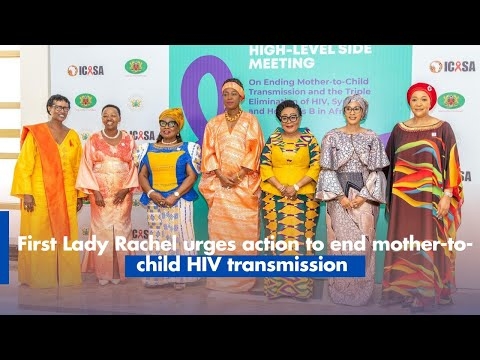 KALRO is also working on other vaccines, such as the peste des petits ruminants (PPR), a viral disease affecting goats and sheep.
KALRO is also working on other vaccines, such as the peste des petits ruminants (PPR), a viral disease affecting goats and sheep.
The National Biosafety Authority has approved field trials for testing Genetically Modified vaccines for the control of Rift Valley Fever (RVF) disease in cattle, goats, sheep and camels.
RVF is a zoonotic viral disease primarily affecting animals and is transmitted by mosquitoes and other insects and is endemic in Africa and the Middle East.
Speaking on the sidelines of the 13th Annual Biosafety Conference, Dr. Martin Mwirigi, the Institute Director of the Biotechnology Research Institute at the Kenya Agricultural and Livestock Research Organization, said they were coming out from the conventional way of developing vaccines and now using biotechnology.
Kenyan researchers are making significant strides in developing next-generation vaccines to combat livestock diseases, harnessing cutting-edge biotechnology, he said.
KALRO is actively involved in research and development of RVF vaccines and leveraging on biotechnology for vaccine development and diagnostic tool development.
"In traditional vaccines, we use the entire virus or bacterium to trigger an immune response. But with biotechnology, we can isolate the specific components, proteins, or antigens that stimulate immunity without introducing the entire organism,” he explained.
This refined approach, Dr. Mwirigi added, allows for the creation of subunit vaccines, which are safer and have fewer side effects.
He gave an example of conventional RVF vaccine that could cause abortions in pregnant animals, adding that using the subunit version avoids this risk as it targets only the key immune-inducing part of the virus
Dr. Murigi said vaccines generated from this technology were more efficient and quite safe and efficient in terms of protecting the animal, as they give a longer-lasting immunity.
KALRO, he added, is also working on other vaccines, such as the peste des petits ruminants (PPR), a viral disease affecting goats.
Dr. Mwirigi confirmed that most of the vaccines used in the country are produced locally by the Kenya Veterinary Vaccine Production Institute and that the biotech-derived vaccines would follow the same model used in conventional vaccines, developed and manufactured right here in Kenya.
The vaccine development process includes identifying target proteins, testing in lab animals, moving to larger animals, conducting field evaluations, and ultimately applying for regulatory approval.
Dr. Musa Mulongo, a vaccine development expert at the International Livestock Research Institute (ILRI), said they are currently developing a new vaccine against the African Swine Fever (ASF), a lethal viral disease that kills nearly all infected pigs within a week, by using gene editing.
The African swine fever is a very complex virus, and with no vaccine in place at the moment, people have been using different strategies.
“We have developed a strategy that we have shown to be completely effective, providing 100% protection against one genotype of African swine fever, and we are looking to see how we can extend this discovery to other genotypes so that we can have full coverage across the continent,” he said.
Dr. Mulongo explained that developing a vaccine was not easy; it is rigorous and usually takes over 10 years to get it to the market, from when one develops an idea, makes a discovery, and develops a vaccine candidate that is advanced to licensing for release to the market.
He said that in Kenya, the process is tightly regulated and works closely with the National Biosafety Authority for GM-related projects, and the Veterinary Medicine Directorate (VMD) for product registration.
Dr. Mulongo assured that all vaccines go through rigorous testing and documentation before they reach the farmer and that nothing is released if there's any indication it could cause harm.
“I want to emphasize that products that get to the farmer as animal vaccines will never get there if there is any doubt that they could cause a problem, and the rule in the work that we do, guided by regulators, is we first of all do no harm, and our data should demonstrate that we have not done any harm, and then from there we move ahead to look at the benefits of what we have given,” he said.
“Our collective goal as researchers, regulators, and producers is to ensure farmers have access to safe, effective vaccines that protect their livestock and investments,” he added.
Dr. Mulongo urged farmers to report any issues with vaccines to relevant veterinary authorities.













